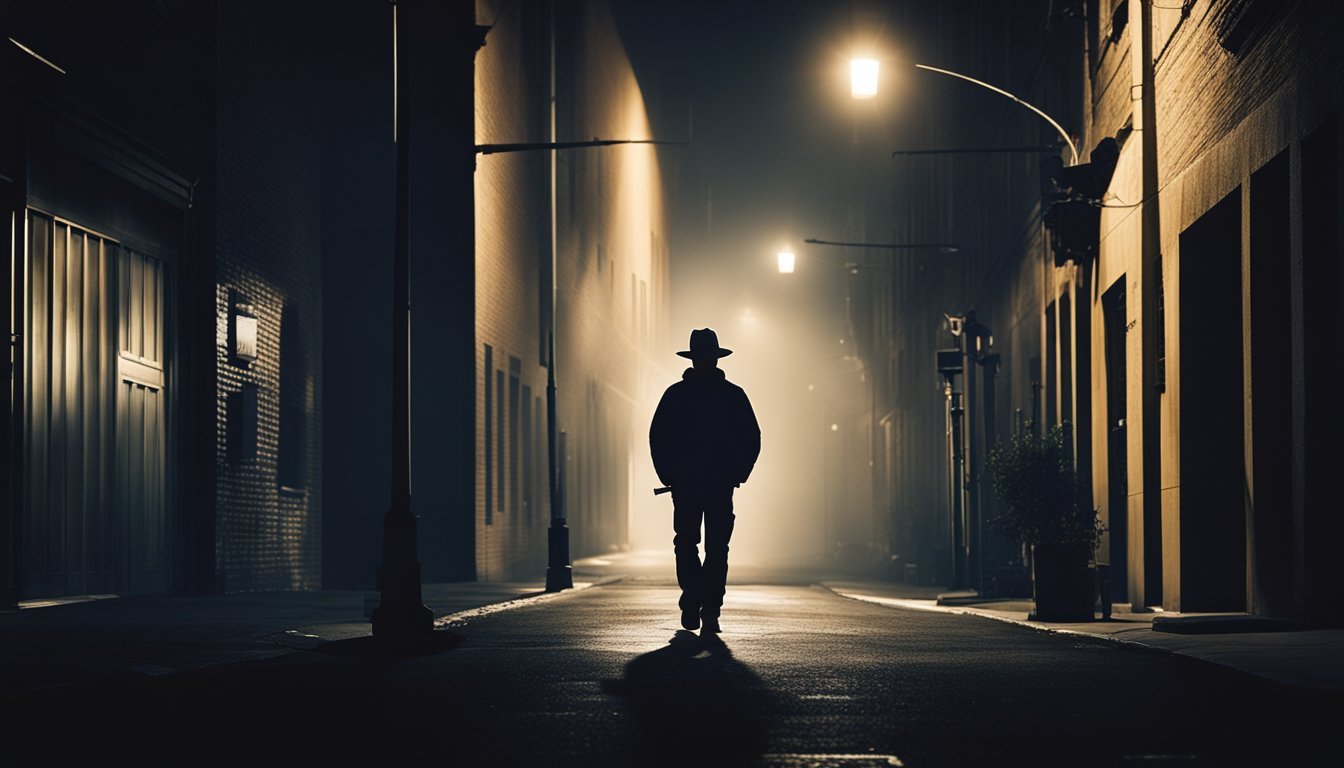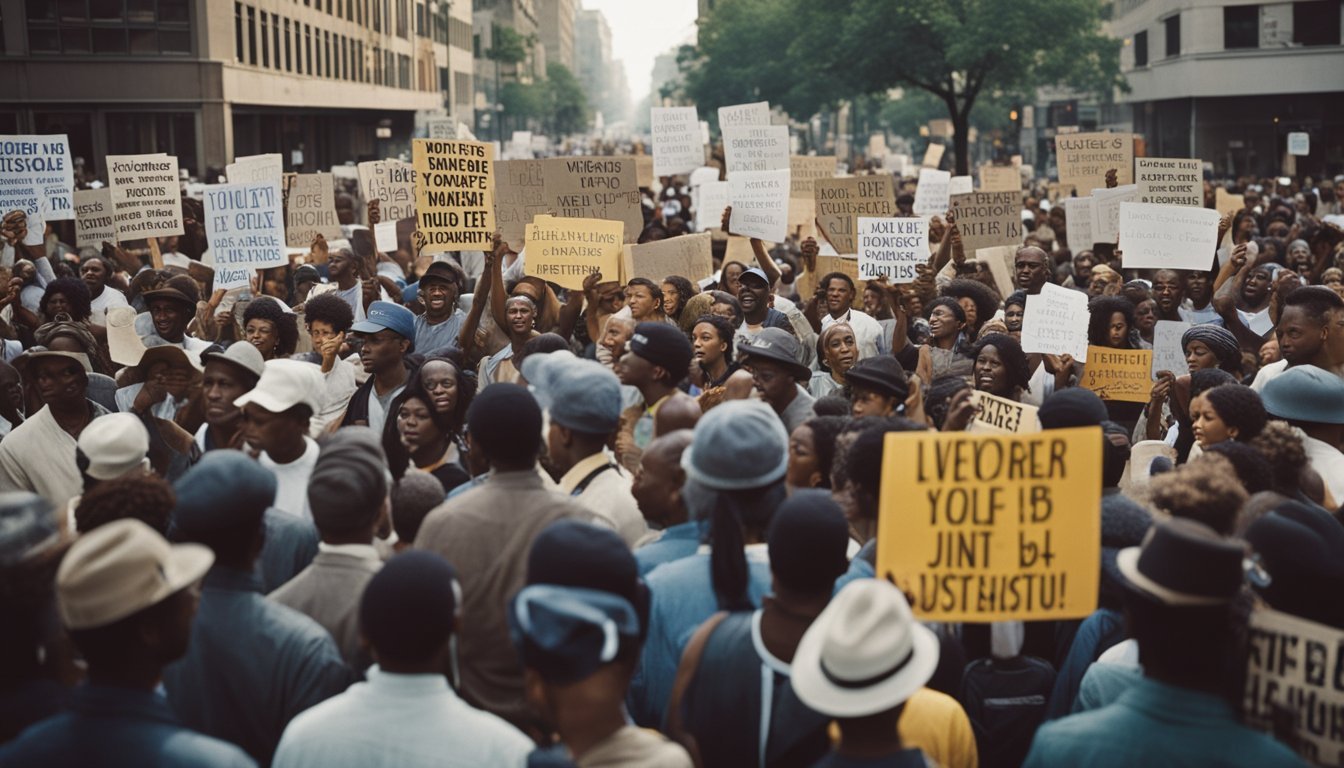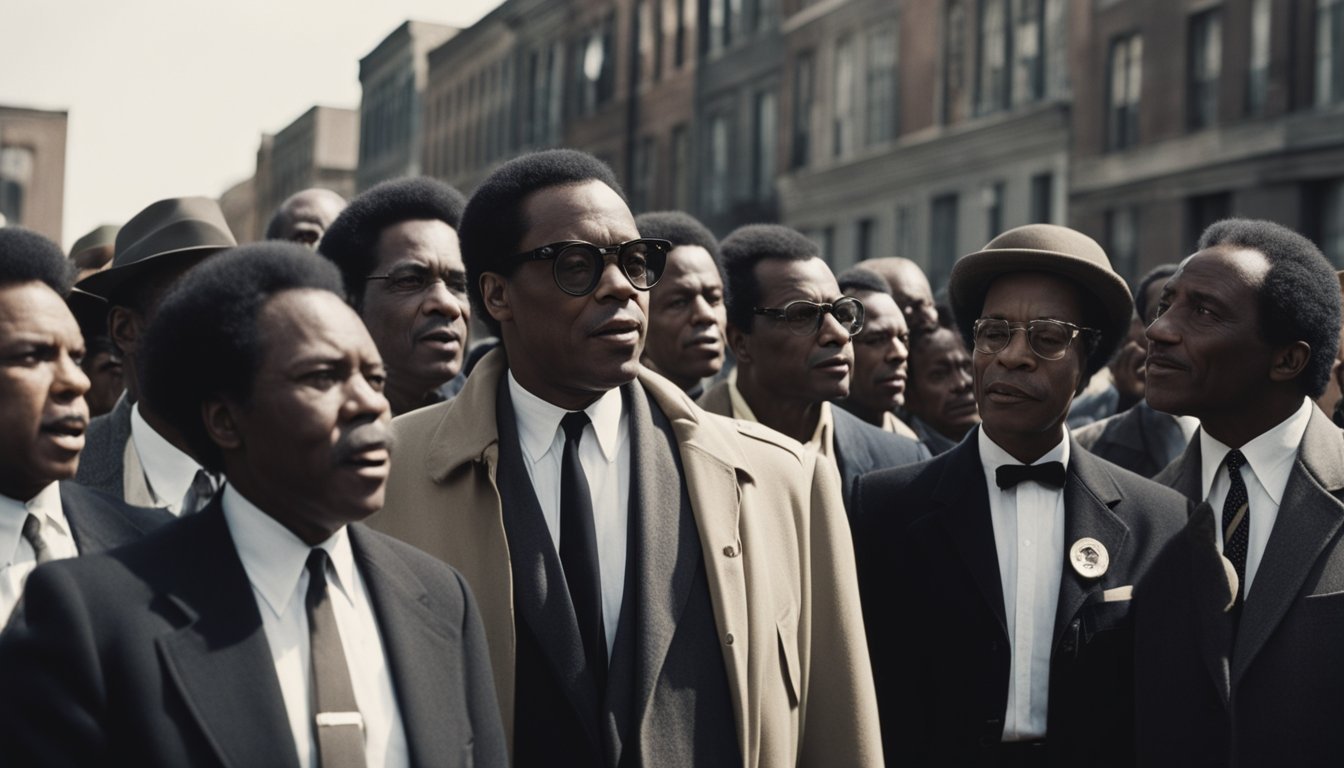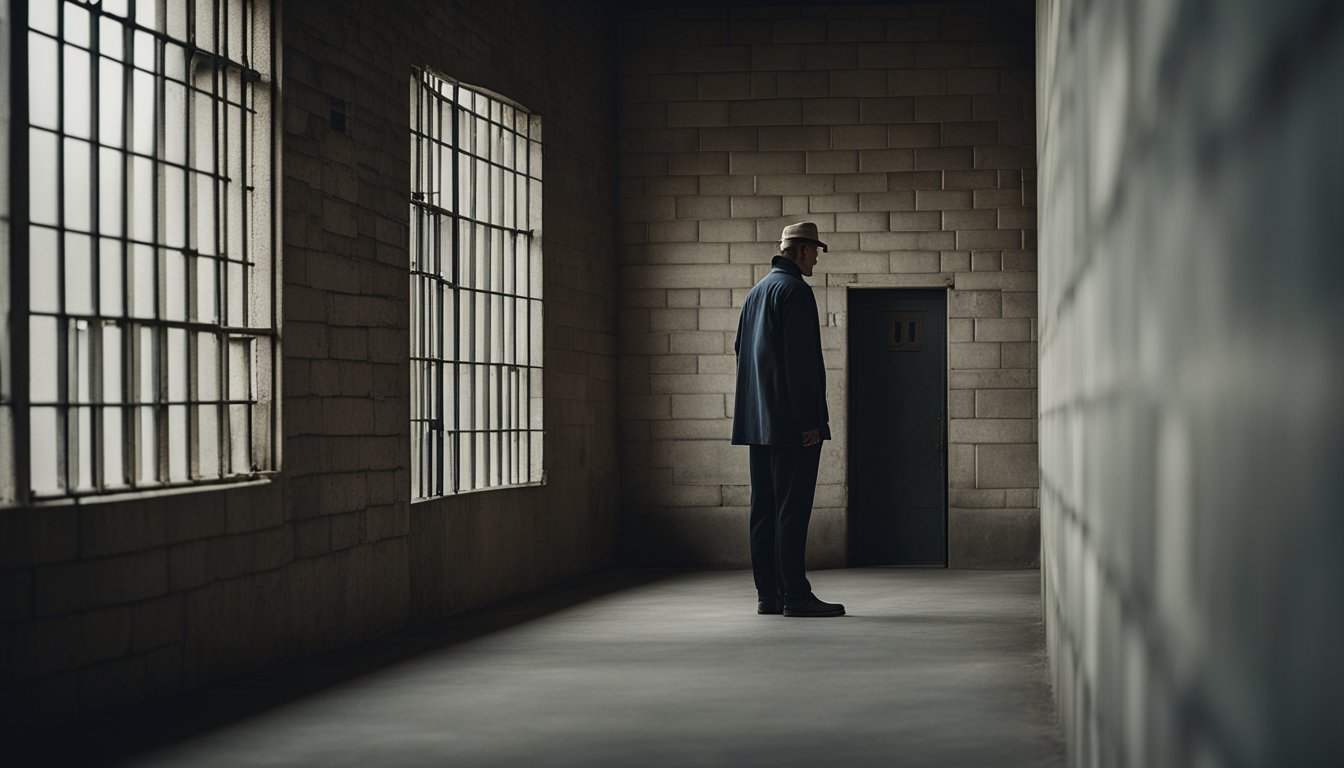Docs Shedding Light on Dark Racial Realities
Documentaries about racism play a pivotal role in opening dialogues and raising awareness on the pervasiveness of racial prejudice and bigotry. These films serve as catalysts for change, deconstructing stereotypes and exploring the historical, social, and political implications of racism. Through powerful storytelling, documentaries about racism have the potential to educate, inspire, and motivate viewers to challenge the way they perceive race and ethnicity.
In a world where racial inequalities still pervade in different aspects of society, documentaries focusing on this topic address various dimensions and contexts of racism. These films shed light on both the personal experiences of marginalized individuals, as well as the systemic issues that continue to perpetuate racism. By offering unique perspectives, these documentaries allow the audiences to explore the interplay of power, privilege, and prejudice, ultimately encouraging empathy and understanding.
The impact of documentaries that delve into racism cannot be understated. Through compelling narratives and eye-opening revelations, these films serve as a vital means to educate viewers about racial dynamics while also promoting social equity and justice. By amplifying marginalized voices and untold stories, documentaries about racism contribute to a more inclusive and just world.
13th
13th is a thought-provoking documentary directed by Ava DuVernay. The film delves into the intersection of race, justice, and mass incarceration in the United States, drawing its title from the 13th Amendment to the U.S. Constitution. This amendment abolished slavery, with the exception of punishment for a crime, thus paving the way for the modern-day prison system to disproportionately target and disenfranchise African Americans.
The documentary features interviews with various activists, scholars, and politicians, allowing it to present multiple perspectives on the issue of systemic racism in America. Some key themes explored in the film include the criminalization of African Americans, the war on drugs, and private prisons as profit-driven industries. To further enrich the viewers' understanding, these themes are supported by a chronological examination of historical events:
Post-Civil War Era: The "Black Codes" and convict leasing system perpetuated exploitation and disenfranchisement of newly freed African Americans.
The Jim Crow Era: A time marked by the rise of segregation laws and the use of discriminatory practices to maintain racial inequality.
Civil Rights Movement: African Americans mobilized to demand equal rights, leading to the passage of the Civil Rights Act of 1964 and the Voting Rights Act of 1965.
In addition to presenting this historical context, 13th scrutinizes specific policies and events that have contributed to the rise of mass incarceration in the U.S.:
The "War on Drugs" initiated by President Richard Nixon, further expanded by President Ronald Reagan, and continued by subsequent administrations.
The "three strikes" law and other mandatory minimum sentencing policies implemented in the 1990s.
The influence of organizations like the American Legislative Exchange Council (ALEC), which has successfully drafted model legislation that promotes mass incarceration.
Through the use of eye-opening statistics, 13th effectively illustrates the severity of racial disparities in the American justice system. For example, the documentary highlights that while African Americans constitute just 13% of the U.S. population, they make up approximately 40% of the incarcerated population.
In conclusion, 13th is an essential documentary in understanding the complex relationship between racism and mass incarceration in the United States. Its thorough exploration of historical events, policies, and statistics provides viewers with the knowledge needed to recognize and further discuss the ongoing challenges surrounding racial inequality and justice.
I Am Not Your Negro
I Am Not Your Negro is a compelling documentary released in 2016. The film, directed by Raoul Peck, examines racism in America through the lens of James Baldwin's unfinished manuscript, Remember This House. This documentary skillfully uses archival footage and Baldwin's poignant words, narrated by Samuel L. Jackson, to shed light on the experiences of black individuals in the United States.
The film delves into the lives and assassinations of three prominent Civil Rights activists: Medgar Evers, Malcolm X, and Martin Luther King Jr. It highlights the impact of their activism on the fight against racism and the ongoing struggle for equality in the country.
Some key themes explored in the documentary include:
The role of media in shaping public perception and perpetuating stereotypes of black people.
The deeply ingrained systemic racism in the United States.
The transformative power of language and literature in fighting racism.
The documentary showcases footage from a range of sources, including television clips, photographs, and audio recordings of Baldwin's speeches and interviews. Peck also incorporates scenes from popular films that demonstrate racial stereotypes and their impact on the perception of black people.
I Am Not Your Negro has been widely praised for its impactful storytelling and its ability to remain relevant in the current socio-political climate. The film garnered numerous awards and nominations, including an Academy Award nomination for Best Documentary Feature.
In conclusion, this documentary offers a vital perspective on the enduring nature of racism in the United States. By centering James Baldwin's voice and work, it illuminates the power of art and activism in driving change while also reminding viewers of the long road ahead in dismantling racial inequality and injustice.
Time: The Kalief Browder Story
Time: The Kalief Browder Story is a six-episode documentary series that powerfully chronicles the heartbreaking experiences and struggles of Kalief Browder. This young man faced extreme racism and injustice within the U.S. criminal justice system. The documentary, directed by Jenner Furst, was released in 2017 and is a collaboration between Spike TV and The Weinstein Company.
Kalief Browder was a 16-year-old African-American student from the Bronx who was wrongfully accused of stealing a backpack in 2010. He spent three years on Rikers Island without being convicted of a crime. Throughout this period, Browder endured:
Over 800 days in solitary confinement
Multiple incidents of abuse from prison guards and fellow inmates
Several attempts at self-harm and suicide
The documentary series heavily relies on a variety of sources to present a comprehensive understanding of Browder's journey. Some of the main sources include:
Interviews with Browder's family and friends
Exclusive surveillance footage from Rikers Island
Media coverage from the time of the incident
Browder's own words from his journals and interviews
The tragic aftermath of this case cannot be understated. Kalief's story has had a lasting impact on public opinion and legislative change in America.
Following his release from Rikers Island, Browder struggled with his mental health and, ultimately, took his own life in 2015. His death led to widespread calls for criminal justice reform.
In 2018, the New York City Council voted to close Rikers Island and replace it with a smaller network of jails—a decision influenced by the outrage over Browder's horrific experiences.
Additionally, Kalief's Law was enacted in New York State in 2020 to ensure that defendants receive a speedy trial, preventing future tragedies similar to Browder's ordeal.
Through its gripping storytelling and skillful use of various sources, Time: The Kalief Browder Story effectively exposes the flaws and discrimination in the U.S. criminal justice system. It stands as an important reminder to seek ongoing reforms in order to create a fairer, more equal society.
Crime + Punishment
Crime + Punishment is a gripping documentary that delves into the racial disparities in the American criminal justice system. Directed by Stephen Maing, the film sheds light on the discriminatory practices that perpetuate racial bias and profiling in law enforcement.
The documentary revolves around the NYPD 12, a group of minority officers who unite to expose the unjust practices within the New York City Police Department. They reveal the hidden pressure on officers to meet arrest quotas, which disproportionately target people of color. This expose highlights the systemic racism within law enforcement, fueling an already tense relationship between the police and communities of color.
Key Aspects:
Systematic discrimination: The film uncovers the quota system that demands officers make a certain number of arrests and issue summonses, regardless of the legitimacy. This leads to racial profiling as officers target minorities to meet these quotas.
Whistleblower's struggle: The NYPD 12's courageous stand comes at a great personal cost. They face backlash, retaliation, and damage to their reputations and careers as they attempt to break the silence.
Impact on communities: The unwarranted emphasis on arrests and summonses deepens the rift between law enforcement and minority communities. Trust deteriorates, and the very people the police are meant to protect become their targets.
Throughout Crime + Punishment, viewers are presented with intimate perspectives of the officers themselves, the communities affected by these practices, and those working to reform the criminal justice system. The documentary showcases the emotional toll on the officers, their families, and the individuals bearing the brunt of this discriminatory system.
Ultimately, Crime + Punishment serves as a powerful reminder of the long-standing issues plaguing the American criminal justice system and the need for reform to ensure equity and justice for all.
The Black Power Mixtape
The Black Power Mixtape is a documentary that delves into the civil rights movement from the perspective of Swedish filmmakers between the years 1967 and 1975. Capturing various African American leaders and activists, the film primarily features interviews, speeches, and protests to unpack the movement's essence.
The documentary contains several powerful components. Emphasizing prominent figures such as Angela Davis, Stokely Carmichael, and Eldridge Cleaver, it highlights their impact on the fight against racism. Additionally, the interviews are a treasure trove of untold stories and lesser-known incidents. For instance, Angela Davis addresses the struggle for human rights in the United States while she awaits trial.
One of the defining features of The Black Power Mixtape is its overarching structure, which follows:
Introduction and historical context
Major events and figures of the Black Power Movement
Analysis and reflection
Revealing the Swedish perspective adds a unique touch to the film. Viewers gain insight into the global scale of racial issues and how foreign journalists perceived the events unfolding in the United States.
In essence, The Black Power Mixtape stands as a valuable collection of material, offering viewers an invaluable look into the Black Power Movement through a foreign lens. While it does not provide a holistic picture, it serves as a fitting tribute to the individuals who tirelessly fought for equality and justice during a turbulent time in American history.
Zero Tolerance
Zero Tolerance is a crucial concept in tackling racism and promoting social justice. This section will explore its significance in documentaries about racism, highlighting key films that embody this approach.
One notable documentary that showcases zero tolerance is I Am Not Your Negro (2016), based on the unfinished manuscript by James Baldwin. Director Raoul Peck weaves together Baldwin's own words with historical footage to spotlight the civil rights movement in America. This film utilizes the strong notion of zero tolerance against racism, emphasizing the need for sustained activism and equal treatment of all individuals, regardless of their race.
Another prominent documentary that reflects this is 13th (2016), directed by Ava DuVernay. Through a comprehensive examination of the 13th Amendment to the United States Constitution, the film addresses the systemic racism in America's criminal justice system. It advocates for:
A zero-tolerance approach to racial discrimination
The urgent need for policy reforms in the legal system
When examining these documentaries, there are some prevalent strategies employed to communicate the message of zero tolerance:
Highlighting personal stories: This approach personalizes the impact of racism and drives home the necessity of zero tolerance against discrimination.
Compelling visuals and statistics: Providing hard evidence, such as statistics or data visualization, strengthens the argument for zero tolerance.
Educating the audience: Documentaries often seek to debunk misconceptions by presenting well-researched information on the subject, encouraging the audience to develop a more informed understanding of racism.
In summary, the concept of zero tolerance is a crucial element in documentaries about racism. By exploring personal stories, compelling visuals, and educational content, these films challenge viewers to confront the issue head-on and cultivate an equitable society.
Back to Natural
Back to Natural is a thought-provoking documentary that delves into the complex subject of institutional racism. This film provides an insightful exploration of the ways in which modern society perpetuates racial inequality and bias, asking viewers to confront these issues head-on.
One of the key themes in Back to Natural is the exploration of the historical and ongoing struggle for racial equality. Several noteworthy events are highlighted, such as:
The Civil Rights Movement, which sought to bring an end to racial segregation and discrimination in the United States.
The Black Lives Matter movement, a contemporary and global effort to combat systemic racism, police violence, and injustice toward Black people.
The documentary makes strong use of archival footage and interviews, giving voice to those affected by these inequalities.
Throughout Back to Natural, the filmmakers examine various aspects of daily life and their impact on the systematic perpetuation of racism, such as:
Education: The ongoing disparities in educational opportunities and outcomes for students of color as compared to their white counterparts.
Employment: The persistent racial wage gap and disparities in career advancement opportunities experienced by Black employees.
Housing: The residual effects of redlining and the continuing fight against housing discrimination in the U.S.
An engaging feature of the film is the use of personal stories, which provide a powerful and emotive firsthand account of the experiences of individuals who have faced racial discrimination. Through interviews with activists, academics, and everyday people, Back to Natural captures the multifaceted nature of the fight against racism.
In terms of cinematography and style, the filmmakers employ a combination of modern and historic visuals, drawing on the rich heritage of the Black diaspora. By incorporating diverse perspectives and shedding light on lesser-known stories, Back to Natural offers a comprehensive and nuanced understanding of the ongoing struggle against racism.
In summary, Back to Natural is a compelling documentary that delves into the complexities of institutional racism, encouraging viewers to confront and reflect on the ways in which racial inequality is perpetuated in modern society. Through its engaging and informative approach, the film seeks to inspire and empower audiences to actively participate in dismantling these oppressive systems, making it a valuable resource for those interested in learning more about racism and its impact on society.
Black Feminist
Black Feminist documentaries provide a way to explore the intersecting dynamics of racism and sexism from the perspective of Black women. These films often focus on the contributions of prominent figures and highlight their influence on the feminist movement while also showcasing the challenges they face.
For instance, The Body Beautiful (1991) directed by Ngozi Onwurah narrates the story of a Black mother and her biracial daughter. The film touches upon topics such as body image, beauty standards, and belonging, while examining the role of race and gender in shaping these experiences.
Key components of Black Feminist documentaries include:
Addressing intersectionality
Challenging mainstream narratives
Highlighting Black women's achievements
Unveiling racism and sexism
Some noteworthy documentaries that hold importance in the realm of Black feminism are as follows:
The Black Panthers: Vanguard of the Revolution (2015) - It uncovers the history of The Black Panther Party, emphasizing the female members' vital contributions.
Ain't I a Woman: Black Women and Feminism (1993) - Inspired by Bell Hooks' work, this documentary discusses Black Feminist thought, its origins, and its impact on contemporary feminism.
Shirley Chisholm '72: Unbought & Unbossed (2004) - A detailed account of Shirley Chisholm's campaign, a Black woman who strove to break barriers in American politics as a presidential candidate in 1972.
These documentaries offer valuable insights into the nuanced experiences and unique perspectives of Black women, showcasing resilience and a sense of solidarity. By watching these films, viewers can gain a better understanding of the complex interplay between race and gender and appreciate the contributions of Black feminists in the broader struggle for social justice.
Journey to Justice
The Journey to Justice section presents a collection of documentaries that highlight the fight against racism and the pursuit of social justice. These documentaries are a testament to the resilience and strength of those who have strived for a better, more inclusive world.
1. 13th (2016)
Ava DuVernay's critically acclaimed documentary, 13th, explores the intersection of race, justice, and mass incarceration in the United States. The film particularly delves into the 13th Amendment to the United States Constitution which abolished slavery, but allowed for prisoners to work as unpaid laborers.
2. I Am Not Your Negro (2016)
I Am Not Your Negro is a documentary based on James Baldwin's unfinished manuscript, Remember This House. The film, narrated by Samuel L. Jackson, examines the lives and assassinations of Martin Luther King Jr., Malcolm X, and Medgar Evers. It connects these civil rights leaders' work to the present-day struggle for racial justice.
3. The Murder of Fred Hampton (1971)
This documentary chronicles the life and activism of Fred Hampton, leader of the Illinois Black Panther Party, who was tragically killed by police in 1969. The film not only presents Hampton's fight against racism but also investigates the suspicious circumstances surrounding his death.
These documentaries provide a compelling glimpse into the ongoing battle for racial justice. By examining different aspects of racism, systemic discrimination, and the impact of these on individuals, communities, and the entire nation, they offer viewers a unique opportunity to learn from history and contribute to fostering a just society.
Ken Burns: The Central Park Five
The Central Park Five, directed by Ken Burns, Sarah Burns, and David McMahon, is a compelling documentary that delves into the infamous 1989 case of five black and Latino teenagers wrongly convicted of raping a white woman in New York City's Central Park. The film uncovers the flaws in the judicial system and exposes the harrowing systemic racism that these young men endured.
The documentary is mainly structured through the following segments:
The Crime and Arrest: In April 1989, the brutal rape of Trisha Meili, a 28-year-old investment banker, shocks the city. The five teenagers—Antron McCray, Kevin Richardson, Yusef Salaam, Raymond Santana, and Korey Wise—are arrested and charged with the crime.
The Interrogations: The five suspects, all between the ages of 14 and 16, undergo intense and manipulative interrogations by the police, leading to coerced confessions that are later recanted.
The Trials and Convictions: The film portrays the two separate trials of the Central Park Five, which resulted in their convictions. Despite the lack of concrete evidence and questionable confessions, all five are sentenced to prison.
The Exoneration: In 2002, convicted serial rapist and murderer Matias Reyes confesses to the crime, leading to the Central Park Five's exoneration and release from prison.
Throughout the film, Ken Burns extensively utilizes archival footage and interviews with the five men, their families, reporters, and legal experts. This helps provide a comprehensive perspective on the case, its social backdrop, and the individuals involved. The documentary dives deep into the racially fueled media frenzy surrounding the case and the political climate of New York City at that time, effectively illustrating the role race played in vilifying and convicting the five young men.
Notably, the documentary also explores the lasting impact of this injustice on the lives of the five men, who collectively spent more than 40 years in prison. It highlights their struggle to reintegrate into society and the emotional and psychological toll their wrongful imprisonment took on their families and relationships.
In summary, The Central Park Five is an eye-opening and significant documentary that sheds light on the systemic racism embedded in the United States' legal system and society. Ken Burns' powerful storytelling and meticulously researched evidence make sure this tragic chapter of history is never forgotten.
Profiled
Profiled is a compelling documentary that sheds light on the deep-rooted issue of racism through an in-depth examination of racial profiling. The film focuses on the impact of racial profiling on individuals and communities, providing a detailed look at the policies and practices that perpetuate this discrimination.
The documentary is structured around interviews with a diverse range of individuals, including:
Victims of racial profiling
Law enforcement officers
Community activists
Legal experts
These interviews provide firsthand accounts of the experiences and consequences of racial profiling, revealing the powerful emotions and lasting trauma it can cause. Profiled also investigates the misuse of police power and resources, as well as the legal loopholes and institutional biases that make racial profiling a common occurrence, despite its known impacts.
One of the key points highlighted in the film is the intersectionality of race and socioeconomic status, which often exacerbates the effects of racial profiling. Through the use of statistics and data visualization, the documentary effectively demonstrates that those most likely to be profiled often come from marginalized communities, where employment opportunities and resources are scarce.
A few important topics addressed in the documentary are:
The history and origins of racial profiling
The role of implicit bias in police decision-making
The impact of racial profiling on the mental health of individuals and communities
Recommendations for reform within the law enforcement and criminal justice systems
Though Profiled does not provide a comprehensive solution to the issue of racial profiling, it effectively generates awareness and stimulates dialogue surrounding the problem. Through its powerful storytelling and evidence-based approach, it encourages viewers to engage with the issue and consider the role they can play in advocating for a more just and equitable society.
Conclusion
In recent years, several documentaries have made significant strides in raising awareness and educating audiences on the complex issue of racism. These films present different perspectives and approaches to address racial prejudice and discrimination, ranging from historical context to modern-day experiences.
Some noteworthy documentaries include:
I Am Not Your Negro: Focused on the life and works of writer James Baldwin. The documentary uses his unfinished manuscript as a basis to explore the continuing struggle for civil rights in the United States.
13th: Examines the intersection of race, justice, and mass incarceration in the United States, highlighting how the 13th amendment of the US Constitution contributed to the current issue of mass incarceration among African Americans.
The Black Panthers: Vanguard of the Revolution: Traces the history of the Black Panther Party, considering its impact on the American civil rights movement and contemporary issues of racial inequality.
The power of these documentaries lies in their ability to engage audiences emotionally and challenge preconceived notions. Through the use of interviews, archive footage, and personal accounts, they help humanize the subjects and offer an understanding of structural racism often overlooked in mainstream media.
When exploring such documentaries, it is essential for viewers to:
Reflect on their own personal biases and privileges.
Engage in open discussions and debates about these topics.
Be proactive in seeking out broader perspectives and viewpoints.
Documentaries about racism serve a vital purpose – not only by informing, but by empowering individuals to_(bold)_be part of the change. By fostering understanding and empathy, these films can encourage critical thinking and a collective responsibility to identify, confront, and dismantle racism in society today.
#racism documentary #police brutality #african american history #african american community #long history #black community #death row #just mercy #racial injustice





